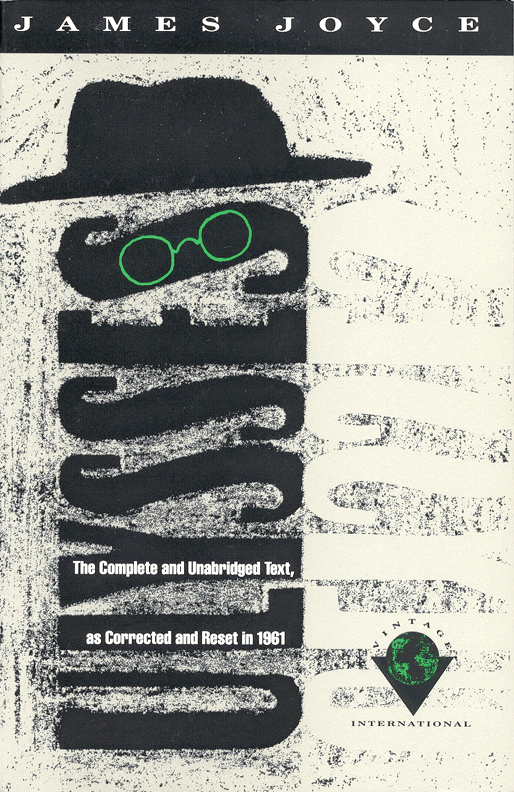
Nothing rivals the experience of reading James Joyce's Ulysses, except for the series of experiences in rereading it. Ulysses is a book that pours along for seven hundred and eighty three pages, a stream of time seven hundred and eighty three days long which all consist in one single and senseless day in the life of every man, the completely irrelevant sixteenth day of June, 1904, in Dublin - a day on which, in all truth, nothing happens. The stream begins in the void and ends in the void. Is all this perhaps one single, immensely long, and excessively complicated pronouncement upon the essence of human life - a pronouncement which, to our dismay, is never finished? Possibly it does touch upon the essence, but quite certainly it reflects life's ten thousand gradations of color. The pitiless stream rolls on without a break, and its velocity or viscosity increases in the last pages till it sweeps away. The suffocating emptiness becomes so unbearably tense that it reaches the bursting point. This utterly hopeless emptiness is the dominant note of the whole book.
This uncanny work of James Joyce's mind pertains to the class of cold-blooded animals. If those animals were gifted with literary powers they would write with the sympathetic nervous system for lack of brain. What we have here is a visceral thinking with the restriction of the cerebral activity and its confinement to the perceptual processes. Joyce's strength of daring in the sensory sphere: what he senses, sees, hears, tastes, smells, touches, inwardly as well as outwardly, is beyond measure.
James Joyce does not follow an individual impulse, but rather a current of collective life which arises not directly from consciousness but from the collective unconsciousness. Consciousness crops up in all areas of cognition. We see the brilliant colors of sunset, have a clear auditory image of soprano's area, and experience frustration when we try to think our way through a difficult algebra problem. These experiences are produced by something from the outside, but at the bottom they are our experiences. We can describe them to others, but ultimately no one else can ever share them. They are private, by definition. By describing what can be done without consciousness, psychologists have tried to understand what consciousness does when it comes into play and just what it contributes to our mental functioning. People can perform many mental functions without being conscious that they do so. They can perceive, remember, reason, and understand with no awareness of what they are doing and with no conscious supervision of these complex activities. The unconscious conception goes back to the ideas of Sigmund Freud, who applied it to ideas or memories that he believed are actively kept out of consciousness because they are threatening or because they provoke anxiety. Freud's theory asserts that dreams tend to reflect the current emotional preoccupations of the dreamer, including those of which he is unaware. But Freud's theory went much further than this, for it insisted that the manifest dream represents a wish fulfillment and is a censored and disguised version of the latent dream that lies underneath. The fact that the same urge is sometimes freely expressed in dreams, in Ulysses, James Joyce expresses it in his writing.
Ulysses wants to be an eye of the moon, a consciousness detached from the object, a thrall neither to the gods nor to sensuality. Ulysses practices the detachment of consciousness through the fog of this book. All the Dedaluses, Blooms, Harrys, Lynches, Mulligans, and the rest of them talk and go about as in a collective dream that begins nowhere and ends nowhere. Ulysses has dared to take the step that leads to the detachment of consciousness from the object; he has freed himself from attachment, entanglement, and delusion, and can therefore turn homeward. He gives us more than a subjective expression of personal opinion and he speaks in stillness to the souls of the multitude. Ulysses is objective and honest and therefore trustworthy. He is reality, life, and meaning. Ulysses is a melancholy of abstract objectivity.